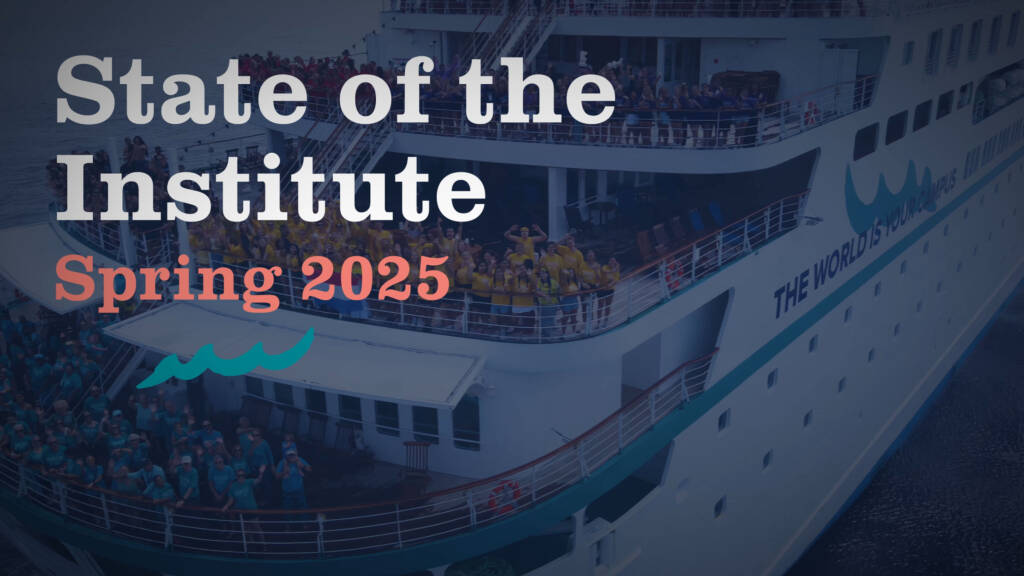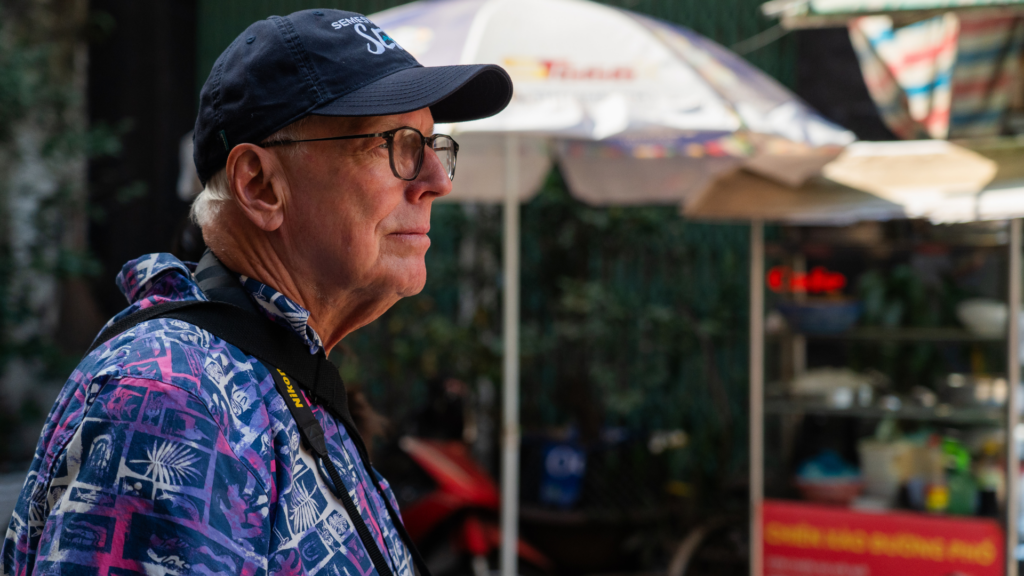
Each year, 198 million people contract malaria worldwide, according to the World Health Organization. 90% of those cases occur in Africa, and most of the affected are children. Malaria costs the African economy $US12 billion dollars annually due to loss of work and productivity. While eradicated in the United States, this dangerous disease is still a worldwide concern. As the Fall 2015 Voyage’s Epidemiology class was to find, preventing and treating malaria is a complicated issue in Western Africa’s Dakar, Senegal.
Dakar is the capitol city of Senegal and marks continental Africa’s westernmost point. It is loud, boisterous and lively at all hours. During the day, markets selling everything from radios to handicrafts to selfie sticks dominate every corner. During the evening, live music, usually starting after 11pm, drums out the city’s heartbeat.
On an already sweltering morning under the African sun, the epidemiology class, led by Dr. Mary Ropka, filed into Dakar’s Cheikh Anta Diop University. The university campus classrooms are connected by open-air walkways with orange and yellow walls, dotted with sandy palm tree pavilions. University students sat on the cool walkway floors, shoes kicked off, gazes concentrated on computers and textbooks.
Ropka, faculty at University of Virginia, believes that the field labs on Semester at Sea set the program apart. “This is a comparative global education program. If we only do what we do in the classroom we might as well stay home. Because the field lab is part of what brings it to life. It gets the students out into different ports to see what things are like out there.”
Marissa Pledger, SAS Spring 2012 alumni and current Peace Corps volunteer in Senegal, moderated the field lab. The 24 year old graduated from University of San Diego after studying international relations. She says deciding to do Semester at Sea was one of the best decisions she made.
“Before Peace Corps, I would have said Semester at Sea was the greatest decision I ever made. And now I think it’s going to have to be the second greatest decision, because Peace Corps has taken that first slot, but Semester at Sea was a huge catalyst. Semester at Sea gave me the confidence, the experience and the abilities to [join the Peace Corps].”
Marissa, known as Binta within her Senegalese community, walked the SAS students through her life in the village of Lougue. Electricity is rare and most of the village sleeps outside eight months of the year to stay cool, on thin mattresses covered by mosquito nets. Lougue’s population swells from 1,500 to 2,500 depending on the nomadic presence of herders. Marissa travels to the surrounding nomadic camps to train local volunteers to spread awareness about malaria prevention practices within their communities. Marissa began her 24-month Peace Corps service in Senegal in March 2014. Since then she’s created her own style of trainings.
“In my trainings, I arm my volunteers to answer the following questions: What is malaria, how is it transmitted, how do we prevent it, and how do we treat it? I want everyone I train to be as knowledgeable as possible so they can be leaders within their community. Within three months, I have specific goals I want them to accomplish.”

10 Senegalese university students volunteered to join the SAS students for lunch and afternoon activities. Lunch included live music performed on traditional instruments, and was served in true Senegalese style, seated on mats, barefoot, with a single platter for the group. They dined on the national dish of thi√©boudi√®ne, containing fish, eggplant, peppers fried rice and local vegetables like “bitter tomato”.
After lunch, Marissa divided the class into four sections paired off with Senegalese student volunteers to confront four real life barriers that Peace Corps encounters when trying to get people to use mosquito nets: the net is too hot to sleep under, the belief that there are other causes than mosquitoes for malaria, proper net maintenance, and the difficulty in diagnosing the rainy season flu versus malaria.
The groups each created trainings to combat the specific issues. One group conducted interviews with the Senegalese students about their personal families’ use of mosquito netting. Another drew up diagrams for net usage and maintenance that could be painted on the side of a building. The other two groups worked out skits and presentations on eliminating other factors than mosquitos and diagnosis.
Marissa’s advice for SAS students is to use the opportunity as preparation for real world applications.
“I know that Semester at Sea prepares you for whatever you want to do. I went on Semester at Sea because I wanted to experience culture and life in the rest of the world the way it is. So in almost every port I did a homestay because that’s what I wanted to do. And that prepared me eventually for the Peace Corps, which is essentially one giant homestay.”
To learn more about Marissa’s work and other volunteers in Senegal, visit PeaceCorpsSenegal.org


